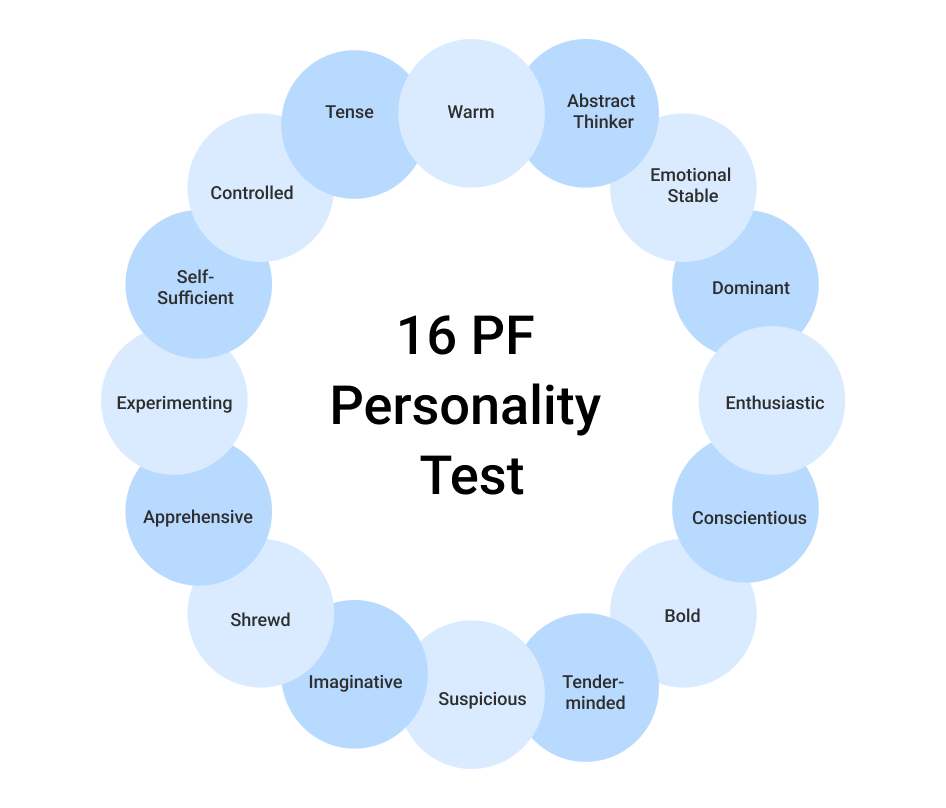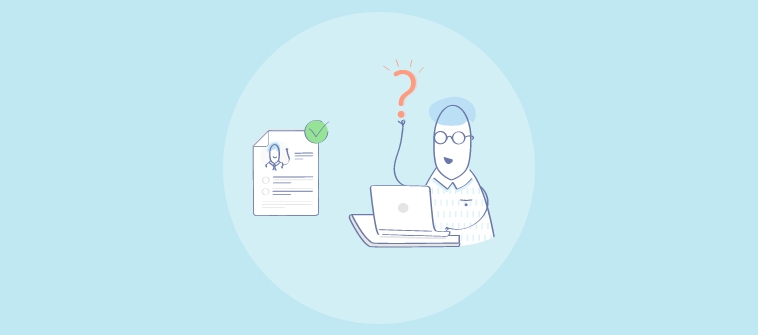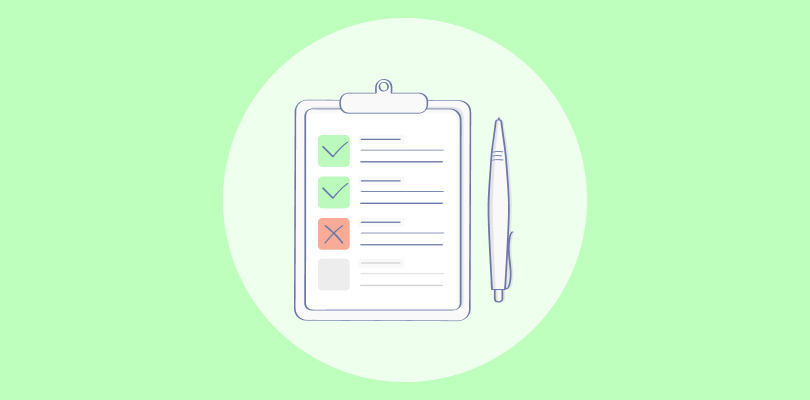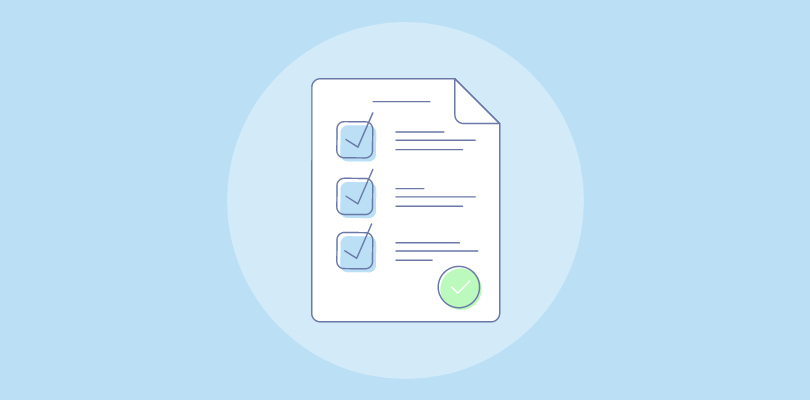Have you ever been a part of a team where things just don’t click despite everyone having the right skills? It might be attributable to personality differences.
We all have unique ways of thinking and behaving, and these traits impact how we interact with others. Personality assessments act like a decoder, helping us understand these differences. They can reveal why some people thrive in teamwork while others prefer solo work or why certain individuals naturally step into leadership roles. In this guide, we’ll understand the definition and meaning of personality assessments and how they can unlock a deeper understanding of ourselves and those around us.
What Is a Personality Assessment?
Ever wondered what makes you you? Personality assessments can help unlock those secrets. They go beyond your resume to reveal your unique traits—how you think, feel, and behave.
Why is this important?
- Individuals: Gain self-awareness, improve relationships, and make informed career choices.
- Organizations: Hire the right people, build strong teams, and boost productivity.
How does it work?
You answer questions about yourself and your preferences. This helps create a picture of your personality, highlighting your strengths and weaknesses.
For example, companies might use assessments to find employees who are naturally collaborative and innovative. This helps them build a more successful work environment.
Watch: How to Create a Personality Quiz
Why Personality Testing Is Useful in the Workplace
What is the purpose of personality assessments? They aren’t just for self-discovery; they’re valuable tools for building stronger organizations. Here’s how:
- Smart Hiring: Find candidates who are not just skilled but also the right fit for your team and company culture. This means fewer bad hires and happier employees.
- Dream Teams: Understand how your employees work best, communicate effectively, and navigate challenges together. This fosters collaboration and unlocks team potential.
- Leader Spotting: Identify individuals with natural leadership qualities and create targeted development programs to nurture their skills.
- Conflict Defusing: Equip employees with the self-awareness to understand their own and others’ conflict-resolution styles, leading to smoother communication and fewer disagreements.
- Engaged Employees: Discover what motivates your employees and create a work environment where they feel valued and inspired to perform their best.
The Science Behind Personality Tests & Assessments
Personality assessments can feel magical, but they’re rooted in science. Here’s the gist:
- Personality Traits: These are the building blocks of your personality. Think “extraversion” or “conscientiousness.”
- Trait Theory: This theory suggests that your unique combination of traits shapes how you think, feel, and behave.
- Example: Someone high in “openness to experience” might love trying new things, while someone low in it might prefer routine.
Just like a telescope reveals the mysteries of space, personality assessments help us understand the complexities of human behavior. They allow us to:
- Identify key traits: Discover the dominant characteristics that drive your actions.
- Predict behavior: Get insights into how you might react in different situations.
- Unlock potential: Understand your strengths and weaknesses to improve yourself.
Now that we have a basic understanding of the science behind these assessments, let’s explore the different types of personality assessments that are used to unlock these fascinating insights.
Types of Personality Assessments
Personality assessments can be broadly classified into the following major types:
1. Self-Report Questionnaires
This is a kind of questionnaire that asks participants to respond to statements or questions about themselves. This type of assessment, like the Myers-Briggs Type Indicator (MBTI), offers insights into your self-perception and how you think, feel, and behave in various situations.
2. Observer Ratings
Will you accept your peers, supervisors, or others who know you well, providing feedback on your personality traits and behaviors? If yes, these observer ratings can help. They are often used in professional contexts and offer a broader perspective on how you’re perceived by others, such as the 360-degree feedback process.
3. Projective Tests
Projective tests prompt you to respond with associations, stories, or interpretations. These assessments, like the Rorschach Inkblot Test, aim to uncover unconscious aspects of your personality and emotions and may help you discover things that you might not even know about yourself.
4. Type-Based Assessments
This is a kind of personality assessment that categorizes participants into distinct types based on their preferences and traits. The Myers-Briggs Type Indicator (MBTI) is a well-known example, placing you within combinations of preferences such as introversion or extroversion.
5. Interest Inventories
Do you wish to get an idea about your preferences for various activities, hobbies, and career paths? You can certainly go for interest inventory assessments, like the Strong Interest Inventory, which offer insights into how your personality aligns with potential interests and careers.
6. Cognitive Function Tests
As the name suggests, these tests assess cognitive function. It’s a kind of assessment that offers outcomes based on how you process information, make decisions, and solve problems.
7. Motivational Assessments
Can you think of an online tool that unveils your underlying motivations, values, and needs? These assessments take into account what drives you and what you find meaningful, helping in personal growth and career decisions.
8. Narrative Assessments
It’s a kind of open-ended assessment format where you can write or speak about your experiences, aspirations, and challenges. These kinds of assessments are often used in therapeutic settings and provide a rich source of personal insights.
9. Personality and Career Assessments
How about a personality assessment that connects your personality traits and preferences to suitable career paths? This is a type of personality test that guides you toward professions that align with your strengths and interests, enabling better career satisfaction.
These are the various types of personality tests and assessments that are used by individuals and organizations to get a better understanding of personality traits.
FREE. All Features. FOREVER!
Try our Forever FREE account with all premium features!
Reliability and Validity of Personality Assessment Methods
Not all personality assessments are created equal. To get accurate insights, you need tools that are:
- Reliable: Produces consistent results over time, like a dependable scale that always gives you the correct weight.
- Valid: Measures what it claims to measure. A valid personality test accurately assesses the traits it’s designed to evaluate.
Why does it matter?
Reliable and valid assessments lead to better decisions, whether you’re hiring new employees or building a leadership program.
How to choose the right assessment:
- Seek scientific backing: Choose assessments that have been rigorously tested.
- Be cautious of free online tests: These may not be scientifically sound.
- Consider testing conditions: Ensure a distraction-free environment for accurate results.
- Consult an expert: When in doubt, seek guidance from a qualified professional.
Common Misconceptions About Personality Assessments
Despite their popularity, personality assessments are often surrounded by misconceptions that can lead to misinterpretations and inaccurate conclusions.
| Misconception | Reality |
| Personality assessments are 100% accurate. | While personality assessments provide valuable insights, they are not foolproof. Factors like mood, context, and personal biases can influence the results. |
| One assessment reveals everything about a person. | Personality is complex and multifaceted. No single assessment can capture its entirety. A comprehensive understanding often requires multiple methods and perspectives. |
| Self-reported traits are scientifically valid. | Self-report assessments rely on individuals’ perceptions, which may not always align with their actual behavior. |
| Projective tests can reveal unconscious secrets. | While intriguing, projective tests are not designed to uncover hidden secrets. Their interpretation requires extensive training and should be approached with caution. |
| There’s a “best” personality test. | Different assessments serve different purposes. The best choice depends on the context, traits being measured, and goals of the assessment. |
| Only psychologists can administer personality tests. | While psychologists frequently use personality assessments, some tests are designed for general use and can be administered by trained professionals in various fields, such as HR. |
| Negative traits are always undesirable. | Some traits traditionally considered negative (e.g., introversion) can have positive aspects and be valuable in certain situations. |
| A single test can determine career suitability. | Personality assessments can offer insights into career preferences, but they should be used alongside other factors like skills, interests, and values for a well-rounded career assessment. |
Popular Personality Assessments
Are you curious about how companies use personality assessments to improve hiring, teamwork, and leadership development? Here are some of the most widely used tools.
1. DiSC Assessment
Images source: discprofile.com
A DiSC assessment is a tool that helps you to understand your own behavior and preferences at work, as well as how you interact with others.
It is based on a theory that identifies four main personality styles: Drive, Influence, Support, and Clarity.
Each of these styles has its own strengths and weaknesses and can be used to improve your communication, teamwork, and productivity.
When you take a DiSC assessment, you will receive a report showing your primary DiSC type and your scores for the other three types.
Here is what the outcomes of this online assessment define:
- Dominance (D): This means you are a decisive and results-oriented person. You like to take charge and get things done. You are also direct and assertive.
- Influence (I): This is an indication that you are outgoing and enthusiastic. You enjoy interacting with people and making connections. You are persuasive and creative, too.
- Steadiness (S): This indicates you are calm and reliable. You like to take things slow and steady. You are also patient and cooperative.
- Conscientiousness (C): This means you are an organized and detail-oriented person. You like to follow rules and procedures. You are also responsible and efficient.
2. The Myers-Briggs Type Indicator (MBTI)
Image source: truity.com
The Myers-Briggs Type Indicator (MBTI) is one of the most widely used personality assessments globally. Based on Carl Jung’s theory of psychological types, it categorizes individuals into 16 distinct personality types based on four dimensions:
- Extraversion (E) vs. Introversion (I): How you focus your energy – on the outer world of people and things or the inner world of thoughts and ideas.
- Sensing (S) vs. Intuition (N): How you perceive information – through your senses and concrete details or through patterns and possibilities.
- Thinking (T) vs. Feeling (F): How you make decisions – based on logic and objective analysis or based on values and subjective considerations.
- Judging (J) vs. Perceiving (P): How you approach the outside world – in a structured and organized way or in a flexible and spontaneous way.
The MBTI is often used for self-discovery, team building, and career development.
3. Hogan Personality Inventory
Image source: Hogan Assessments
The Hogan Personality Inventory is a tool that measures your personality traits and how they relate to your work performance.
It is based on the idea that social life has two main themes: getting along with others and getting ahead of others.
When taking the Hogan Personality Inventory assessment, you can get as many as 13 different outcomes, which are as follows:
- Adjustment (ADJ): How well you adapt to change and handle stress.
- Assertiveness (ASR): How confident and direct you are in your communication style.
- Competition (COM): How much you enjoy winning.
- Conscientiousness (CON): How organized, reliable, and detail-oriented you are.
- Defensiveness (DEF): How sensitive you are to criticism and how likely you are to deny your weaknesses.
- Emotional Stability (ES): How well you control your emotions and stay calm under pressure.
- Interpersonal Sensitivity (INS): How aware you are of the feelings and needs of others.
- Leadership (LEA): How much you enjoy taking charge and being responsible for others.
- Motivation (MOT): How ambitious and driven you are to succeed.
- Optimism (OPT): How positive and hopeful you are about the future.
- Self-confidence (SCF): How confident you are in your abilities and judgment.
- Social Boldness (SOB): How comfortable you are interacting with others and taking social risks.
- Teamwork (TWK): How willing you are to cooperate with others and put the team’s needs ahead of your own.
The HPI is a self-report test, which means that you answer the questions yourself. However, your results are interpreted by a trained professional, and you may get answers in percentile.
4. Occupational Personality Questionnaire
Image source: SHL
The Occupational Personality Questionnaire (OPQ) is a personality test that measures 32 personality dimensions that are relevant to workplace success.
These dimensions are grouped into three domains:
- Relationships with People: This includes how you interact with others, including your ability to work as a part of a team, your leadership style, and your ability to build and maintain relationships.
- Thinking Style: This is an indicator of how you approach problems and make decisions, including your creativity, your attention to detail, and your ability to think strategically.
- Feelings and Emotions: This indicates how you manage your emotions, your level of self-confidence, and your ability to deal with stress.
When you get an idea about your OPQ profile, you can learn how to use your strengths to your advantage and improve your weaknesses.
No wonder, this personality assessment test is used in organizations for getting valuable insights into how people might approach various aspects of their work and interact with colleagues and tasks.
5. Caliper Profile
Image source: Caliper Profile
The Caliper Profile assessment is a tool that can help you understand your own personality traits, motivations, and behaviors related to your work performance.
It is based on nearly 60 years of scientific research and measures 22 robust traits and one type of cognitive ability.
The Caliper Profile assessment measures 22 personality traits, including:
- Curiosity: Your level of interest in new things and your willingness to take risks.
- Dominance: Your tendency to take charge and make decisions.
- Interpersonal Sensitivity: Your ability to understand and relate to others.
- Motivation: Your drive to achieve your goals.
- Organizational Awareness: Your ability to see the big picture and understand how your work fits into the overall organization.
- Problem-solving: Your ability to identify and solve problems.
- Self-confidence: Your belief in your own abilities.
- Teamwork: Your ability to work effectively with others.
While it is used by many large organizations in various industries, such as technology, medicine, aviation, finance, and engineering, you can understand how valuable it is for employers to use it when making hiring decisions.
It can help them identify candidates who are a good fit for the job role and who are likely to be successful.
6. 16 Personality Factor Questionnaire

Image source: mbaskool.com
The 16 Personality Factor Questionnaire (16PF) is a personality test that measures 16 primary personality traits. These traits provide a broad view of an individual’s personality, including how they think, feel, and interact with others.
Some of the 16 factors measured by the 16PF include:
- Warmth: How friendly and outgoing you are.
- Reasoning: Your intellectual ability.
- Emotional Stability: Your ability to handle stress.
- Dominance: How assertive you are.
- Liveliness: Your level of energy and enthusiasm.
The 16PF is a self-report test, which means that you answer the questions yourself. Your results are typically interpreted by a trained professional.
The 16PF is often used in:
- Workplace: To help with hiring decisions.
- Clinical Settings: To understand personality.
- Education: For guidance counseling.
The 16PF can help individuals understand their strengths and weaknesses and make better choices about their careers.
7. The HEXACO Personality Inventory
Image source: psychology.fandom.com
The HEXACO Personality Inventory is a personality framework that builds upon the Big Five model by adding a sixth dimension: Honesty-Humility. The six dimensions are:
- Honesty-Humility: Sincerity, fairness, and modesty versus greed and pretension.
- Emotionality: Fearfulness, anxiety, and dependence versus emotional stability and bravery.
- Extraversion: Social self-esteem, social boldness, and sociability versus shyness and social withdrawal.
- Agreeableness: Forgiveness, gentleness, and flexibility versus anger and quickness to judge.
- Conscientiousness: Organization, diligence, and perfectionism versus carelessness and lack of discipline.
- Openness to Experience: Aesthetic appreciation, inquisitiveness, and creativity versus shallowness and lack of imagination.
The HEXACO model provides a nuanced understanding of personality, capturing traits relevant to various aspects of life, including work.
8. The Minnesota Multiphasic Personality Inventory (MMPI)
Image source: simplypsychology.org
The Minnesota Multiphasic Personality Inventory (MMPI) is a comprehensive personality test primarily used to assess mental health and psychopathology. It consists of a large number of true/false questions and provides scores on various clinical scales, including:
- Hypochondriasis: Concern with bodily symptoms
- Depression: Feelings of sadness and hopelessness
- Hysteria: Use of physical or mental symptoms to avoid responsibility
- Psychopathic Deviate: Antisocial tendencies
- Masculinity/Femininity: Stereotypical masculine or feminine interests
- Paranoia: Suspicion and mistrust of others
- Psychasthenia: Anxiety and obsessive-compulsive tendencies
- Schizophrenia: Distorted thinking and perception
- Hypomania: Elevated mood and energy
- Social Introversion: Shyness and social withdrawal
While the MMPI is mainly used in clinical settings, it can also be used in certain occupational contexts where mental health is a critical factor.
9. Keirsey Temperament Sorter
Image source: verywellmind.com
The Keirsey Temperament Sorter is a personality assessment that identifies four temperaments, each with two character types, resulting in a total of eight personality types. These are based on the ancient Greek temperaments and are linked to Myers-Briggs types. The four temperaments are:
- Artisans: Concrete and adaptable, focused on the present and action. (SP types in MBTI)
- Guardians: Concrete and organized, focused on responsibility and security. (SJ types in MBTI)
- Idealists: Abstract and compassionate, focused on personal growth and ethical concerns. (NF types in MBTI)
- Rationals: Abstract and objective, focused on knowledge and competence. (NT types in MBTI)
The Keirsey Temperament Sorter helps individuals understand their natural strengths and preferences, particularly in communication and action.
10. Revised NEO Personality Inventory (NEO PI-R)
Image Source: ckju.net
The Revised NEO Personality Inventory (NEO PI-R) is a personality inventory that assesses individuals based on the Five-Factor Model of personality (often called the Big Five). It measures five broad dimensions of personality:
- Openness to Experience: Imagination, feelings, actions, ideas.
- Conscientiousness: Competence, self-discipline, thoughtfulness, goal-driven.
- Extraversion: Sociability, assertiveness, emotional expression.
- Agreeableness: Cooperative, trustworthy, good-natured.
- Neuroticism: Tendency toward unstable emotions.
The NEO PI-R provides a detailed personality profile, including facets (sub-traits) within each of the five domains. It is often used in research and clinical settings to understand personality and predict behavior.
11. Eysenck Personality Inventory (EPI)
Image source: eduolog.com
The Eysenck Personality Inventory (EPI) is a questionnaire that assesses personality based on three dimensions:
- Extraversion: Measures sociability, activity, and liveliness.
- Neuroticism: Measures emotional stability and tendencies toward anxiety and negative emotions.
- Psychoticism: Measures traits like aggression, impulsivity, and a lack of empathy.
The EPI is used to understand individual differences in personality and how these relate to various behaviors and tendencies. It is often used in research and clinical settings.
12. Rorschach Inkblot Test
Image source: rorschach.org
The Rorschach Inkblot Test is a projective personality test that uses a series of inkblot images to assess an individual’s underlying personality characteristics, emotional functioning, and thought processes. Individuals are asked to describe what they see in the ambiguous inkblots, and their responses are interpreted based on factors such as:
- Content: What the person sees in the inkblot
- Location: The part of the inkblot they focus on
- Determinants: What features of the inkblot (shape, color, texture) influence their response?
The Rorschach is primarily used in clinical settings and requires extensive training for administration and interpretation.
Limitations of Personality Assessments
While personality assessments offer valuable insights, it’s important to be aware of their limitations to interpret results accurately and avoid potential pitfalls.
- Self-Report: The results of personality assessments can be influenced by your mood, motivation, and ability to assess yourself accurately. For example, if you are feeling stressed or anxious, you may answer questions in a way that makes you sound more introverted than you actually are.
- Social Desirability Bias: There is always a chance that you would try to answer questions to make yourself seem more desirable to others. No wonder this can affect the outcomes of the assessment.
- Limited Validity: The validity of personality assessments varies depending on the test and the purpose for which it is being used. Some tests are more valid for predicting certain outcomes, such as job performance. However, the outcomes of an assessment may only be valid for a while.
- Cost: Online personality assessments can be expensive to administer and score. This can make them inaccessible to some individuals or organizations. There are free versions, but most of them have limited usability.
But despite these factors, online personality assessment tools have emerged to be one of the most sought-after options for assessing the nature and persona of a person.
FREE. All Features. FOREVER!
Try our Forever FREE account with all premium features!
Importance of Using Reliable Personality Assessment Methods
To ensure you’re getting the most accurate and insightful results, it’s crucial to prioritize the use of reliable personality assessment methods.
- Accurate Understanding: If you do not go for reliable assessments, you may not get consistent and dependable results. Besides, the likelihood of misinterpretation or misjudgment would be higher.
- Informed Decision-Making: In the lack of reliable personality-assessment methods, important decisions, such as hiring employees, team building, or selecting leaders, can be affected. You can confidently rely on the assessment results to guide your choices.
- Predictive Power: If you do not have reliable assessments, you might not have the ability to predict behaviors and performance over time.
- Trust and Credibility: Using assessments with a proven track record for reliability enhances your credibility as an evaluator. However, if they are not so reliable or credible, you may even misjudge your own credibility.
- Enhanced Self-Awareness: Unreliable assessment methods may not offer reliable results, which might affect the understanding of your personality traits and tendencies. No wonder this can affect your self-awareness and decision-making.
- Long-Term Planning: If you are a part of a business organization, not having reliable assessments may affect your long-term planning. Identifying potential leaders, assessing team dynamics, and aligning individuals with suitable roles can be an intricate process.
- Continued Improvement: Reliable assessments often undergo rigorous validation processes and updates. However, if you do not go for reliable methods, chances of improvement with time are minimal.
- Reduced Costs and Risks: If you do not use reliable assessments, you might face the risk of poor decision-making and high potential costs related to turnover, performance, or conflicts.
Try a Mini Personality Assessment Now
By now, I hope you are well-versed in personality assessment and its effectiveness in various situations. Below is an example of a personality assessment. You can try this mini personality assessment and get an idea about how things work.
Ready to Deploy Personality Assessments?
Unlocking the secrets of human behavior starts with understanding personality. As we’ve explored, personality assessments are powerful tools that provide valuable insights into how people think, feel, and behave. From DiSC to Hogan, each assessment offers a unique lens through which to view the complexities of human personality.
Remember, the key to successful personality assessment lies in choosing reliable and validated tools. Ready to harness the power of personality? Explore ProProfs’ personality assessment features and ready-to-use psychometric assessments to discover the potential within your team and applicant pool.
Frequently Asked Questions
Are personality tests accurate?
The accuracy of personality tests depends on a number of factors, including the type of test, the way it is administered, and the honesty of the test-taker. The way a personality test is administered can also affect its accuracy. If you are considering taking a personality test, it is important to do your research and choose a test that is right for you.
What is an example of a personality assessment?
One well-known example of a personality assessment is the Myers-Briggs Type Indicator (MBTI). It categorizes individuals into 16 personality types based on four key dimensions:
- Extraversion (E) vs. Introversion (I) – How individuals direct their energy.
- Sensing (S) vs. Intuition (N) – How they process information.
- Thinking (T) vs. Feeling (F) – How they make decisions.
- Judging (J) vs. Perceiving (P) – How they approach structure and organization.
The DiSC Assessment, Big Five Personality Test, and Hogan Personality Inventory are also widely used for self-awareness, team-building, and career planning.
What role do personality assessments play in career counseling?
Personality assessments can play a valuable role in career counseling by helping people understand their strengths and weaknesses, their working style, and how they interact with others. This information can be used to help people choose a career that is a good fit for their personality. It is also helpful in aspects such as:
1. Identifying career interests
2. Exploring career options
3. Matching personality to career
4. Developing career plans
Is it ethical for employers to use personality assessments in hiring?
Using personality assessments in hiring can be ethical if applied correctly and fairly. Here are key ethical considerations:
- Transparency – Candidates should be informed about the purpose of the assessment and how results will be used.
- Relevance – The assessment should measure traits that directly relate to job performance.
- Non-Discrimination – Tests must not be biased against any group or violate employment laws.
- Data Privacy – Employers should handle results confidentially and not use them beyond the hiring decision.
When used ethically, personality assessments can help employers identify candidates who align with company culture and job expectations. However, they should never be the sole deciding factor in hiring decisions.
What is the personality assessment inventory?
The Personality Assessment Inventory (PAI) is a self-report personality test that is used to assess adult personality and psychopathology. It was developed by Leslie Morey in 1991. The test is divided into 22 scales, including 11 clinical scales, 4 validity scales, 5 treatment scales, and 2 interpersonal scales. The PAI is a widely used personality test in various settings, including clinical, forensic, and organizational settings.

 We'd love your feedback!
We'd love your feedback! Thanks for your feedback!
Thanks for your feedback!







